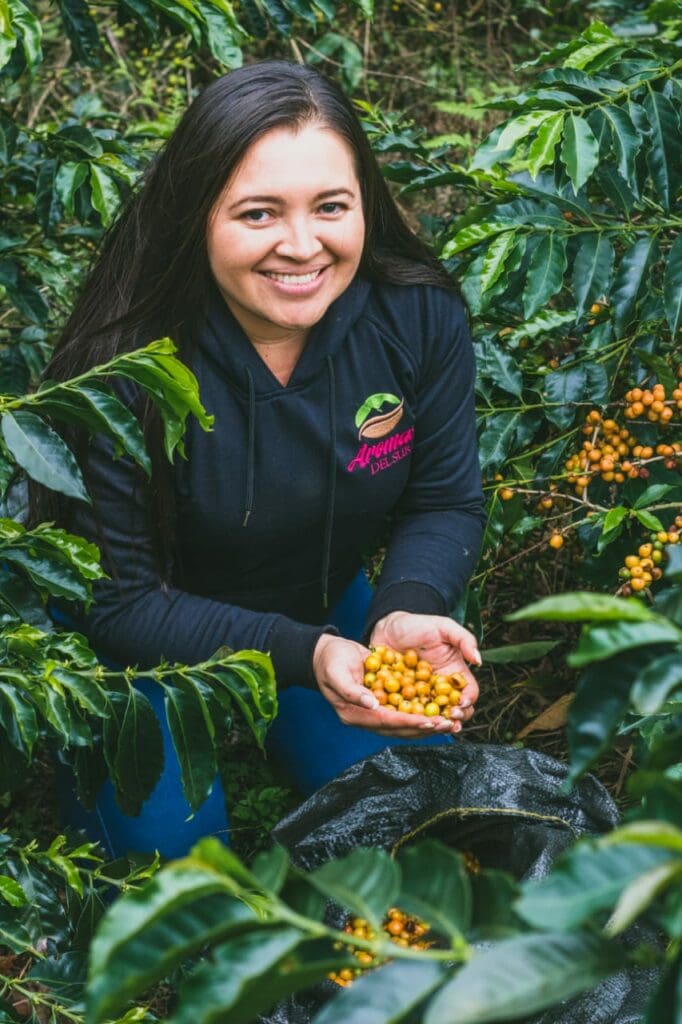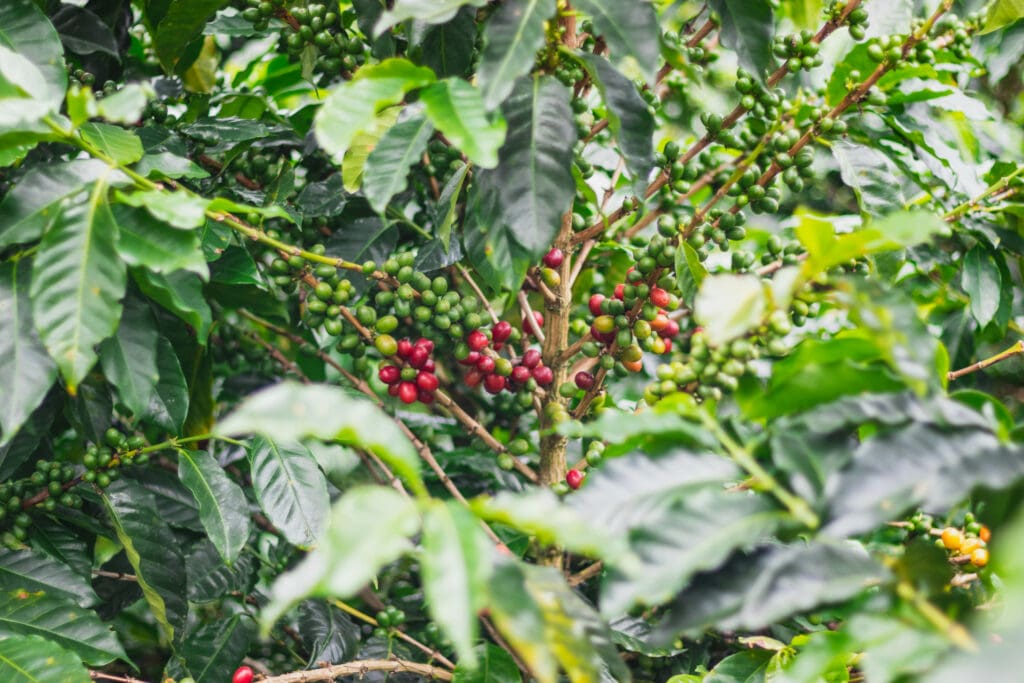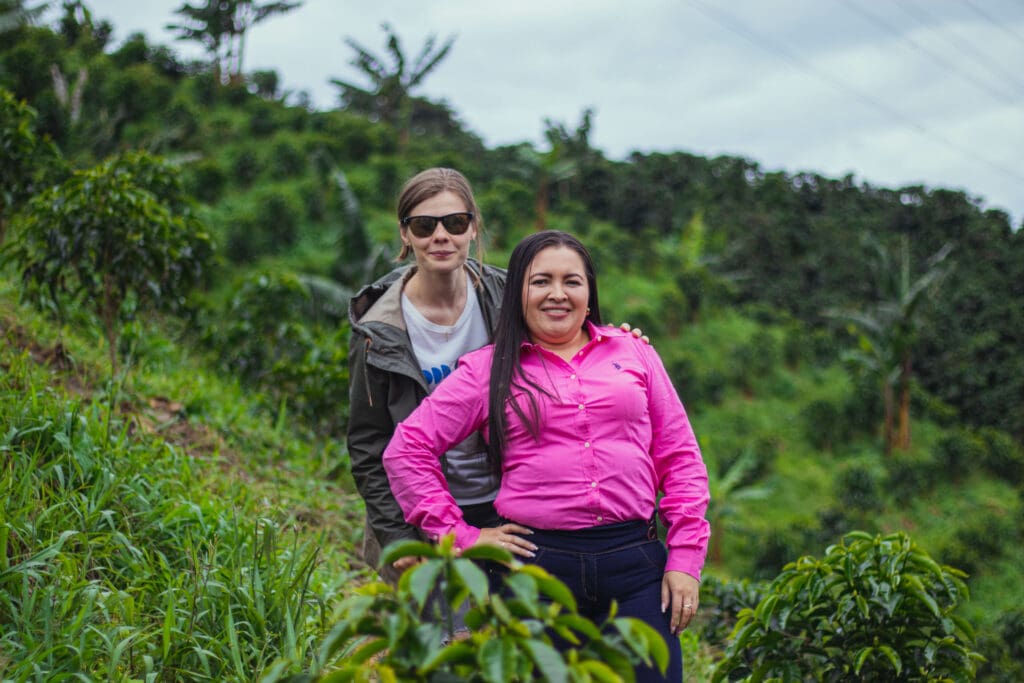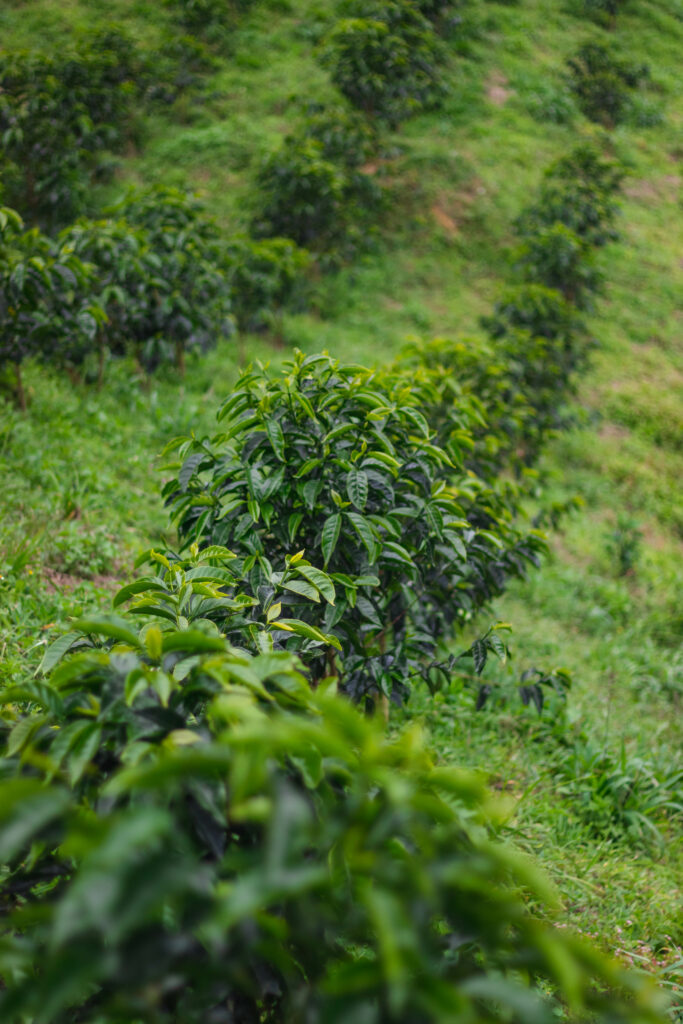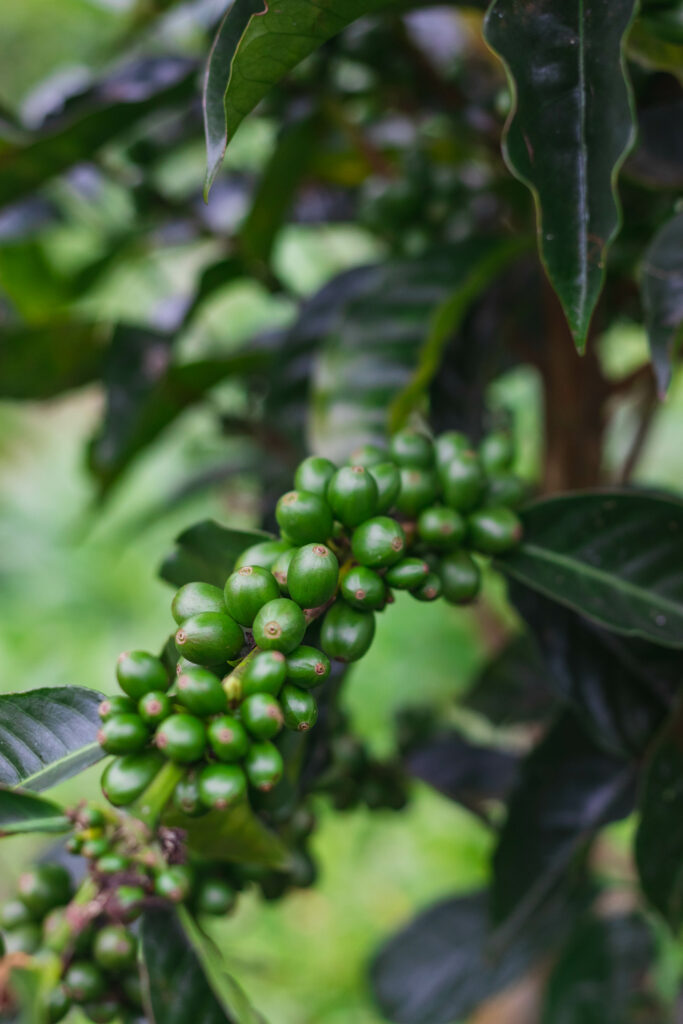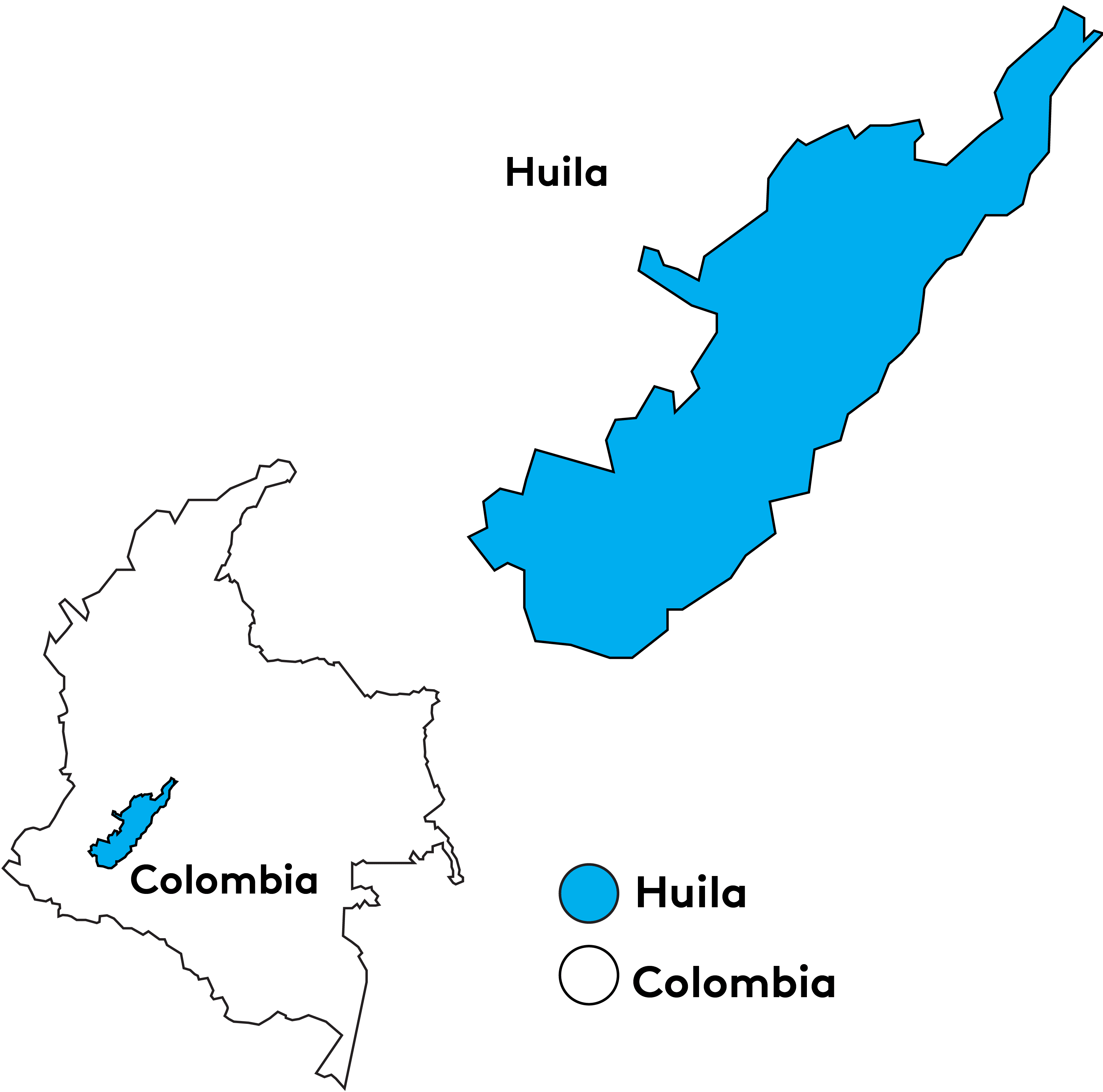Finca Las Nubes, located in the township of Agua Negra just 15 minutes outside of Pitalito, Huila, Colombia, is a partnership between professionals from every part of the coffee supply chain. The partnership includes:
– Claudia Samboni, coffee producer and co-owner of Aromas del Sur, which includes three coffee farms (Finca Monteblanco, Finca El Progreso, and Finca La Loma) and the Aromas del Sur dry mill
– Vicente Mejia, an exporter and trader with Clearpath Coffee
– Ricardo Pereira, COO of Ally Coffee
– Mark Trujillo, coffee roaster and owner of The Hub Coffee Co in Reno, Nevada, USA.
By bringing together this varied experience from each step in the process the team plans to focus on quality and sustainability in everything they do throughout production.
The farm was purchased in early 2020 and was already planted with coffee, but needed some attention and care to get the coffee trees into good shape. While part of the focus initially was to get the trees prepared to produce quality coffee, they already had an eye to the future with plans to plant varieties less common to Colombia—varieties like Mokka, and Sudan Rume. Even still, the 27 hectare farm is currently planted with Caturra, Pacamara, Pink Bourbon, and Gesha. Sitting at the top of a mountain overlooking the Laboyos Valley, Las Nubes gets mild temperatures around 18–21° C during the day, with cooler temperatures at 10–12° C at night, and enjoys an unobstructed view of the valley and surrounding mountains.
The property’s main building includes a drying space under its roof, as well as a water collection system that stores rainwater in a subterranean tank for daily tasks and coffee processing. Las Nubes also has an automated cherry floating system, depulper, and a 10,000 kg capacity mechanical silo on site for processing.
This lot of Washed Caturra coffee was decaffeinated using the Ethyl Acetate (EA) decaffeination process.
Ethyl acetate is produced by esterification between ethyl alcohol and acetic acid. The ethyl acetate used by Descafecol is produced by sugarcane grown locally. Sugarcane grows at lower elevations than coffee and is often planted at the base of the same mountains where coffee flourishes. Ethyl acetate and spring water are the only substances coffee comes into contact with during the decaffeination process. This process is FDA approved and the ethyl acetate produced by Sucroal is verified food grade, kosher, and halal.
Ethyl acetate is a natural solvent, meaning it can dissolve other substances. The EA process gently extracts the caffeine from coffee beans, avoiding the use of excessive heat that could damage the structure of the beans.
The EA process begins with a pretreatment step of steaming beans at a low pressure to remove silver skins. Coffee is then moistened with hot water to swell and soften the beans to catalyze the hydrolysis (the chemical breakdown of a substance due to reaction with water) of the caffeine, which is bonded to chlorogenic acid inside the coffee.
Coffee next passes to an extractor, where caffeine is removed by repeatedly washing with the natural solvent ethyl acetate. This process happens several times to complete the extraction stage, removing more than 97% of caffeine, per US standards.
Once caffeine extraction is complete, a flow of low-pressure steam is passed over coffee to strip residual ethyl acetate, leaving less than 5 ppm, which evaporates at 70°C once coffee beans are roasted.
Coffee, now decaffeinated and free from ethyl acetate, moves from the extractors to the vacuum drying drums to remove the water applied during the moistening step and adjust the final humidity of the beans to between 10-12%. Coffee is cooled to ambient temperature using fans and polished as the final step of post-treatment. Coffee is then ready to be packed and shipped as decaf, providing the full and delicious flavor of Colombian terroir to those sensitive to stimulants!
